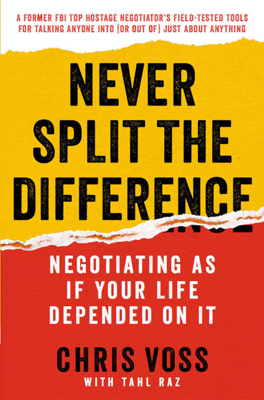Bend Their Reality
Understanding and Leveraging Realities in Negotiation
The Concept of "Bending Reality"
"Bending Reality" is a negotiation technique that involves understanding and leveraging the unspoken needs, irrational blind spots, and undeveloped notions of the counterpart. By recognizing hidden desires and leveraging them, negotiators can significantly alter the counterpart’s expectations to match what is intended to be offered, not merely what they think they deserve.
The Dangers of Compromise
In negotiation, compromise (or "splitting the difference") is discouraged as it often leads to suboptimal outcomes. Chris Voss stresses that compromise can be a sign of naive negotiation, potentially leading to either a bad deal or no deal at all. Even in high-stakes scenarios like kidnappings, accepting a bad compromise could lead to disastrous results. The desired approach is to acknowledge that negotiation is not a straightforward, linear process but rather one that strategically leverages various variables.
Leverage Time and Deadlines
Time and deadlines play a significant role in negotiations. Deadlines induce pressure and often cause rash decisions that are not in one's best interest. Voss encourages negotiators to resist the pressure of deadlines and manipulate this in counterparts when possible. Noting that the pressure of deadlines often leads to stress and poor choice, he suggests using the counterpart’s deadlines against them to enhance your position, especially when they are self-imposed and less tied to concrete outcomes.
Fairness and Emotional Influence
The concept of fairness is intricately tied to emotions in negotiation. Voss argues that invoking "fairness" effectively influences negotiation outcomes. Labeling an offer as fair can manipulate the emotional perception of the proposal, leaving the counterpart feeling morally obliged to accept or adjust their demands accordingly. This tactic can disarm opponents and lead to concessions without explicit pressure.
Strategies for Negotiating with Emotional Anchors
Anchor Their Emotions: Start with a negative scenario to lower expectations; then, your offer will seem better by comparison, leveraging loss aversion.
Don't Always Offer First: Instead, let the counterpart anchor the terms, especially when unsure of the market value or their initial offers might be better than expected. However, be prepared for extreme anchors from experienced negotiators.
Establishing a Range: Suggest a range that aligns with your objectives, making your preferred outcome appear more acceptable by placing it at the lower end of the proposed spectrum.
Pivot to Non-monetary Terms: Offer or request terms that are of low significance to you but may hold considerable value for the counterpart, optimizing both sides' satisfaction without significant concessions financially.
Use Odd Numbers for Specificity: Precise, non-rounded numbers in proposals suggest well-calculated offers that make the figure seem more thought-out and hard to contest.
Surprise with a Gift: This tactic leverages the psychological principle of reciprocity, where receiving a favor or gift inclines the counterpart to return the favor, thus softening their negotiation stance.
These strategies demonstrate a profound understanding of the psychological underpinnings of negotiation, emphasizing the non-linear and often irrational nature of decision-making in high-pressure situations. By deploying these methods, negotiators can craft outcomes that serve both the immediate goal of closing favorable deals and the long-term objective of building successful negotiation reputations.
